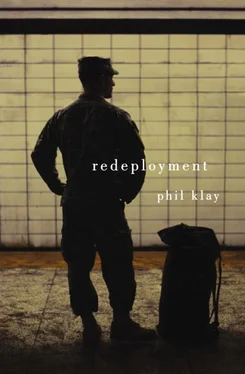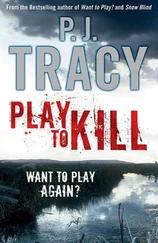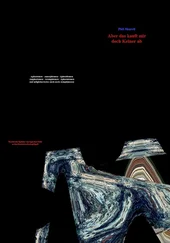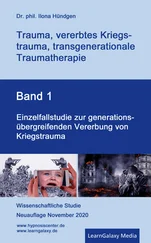“Madame,” said Kazemi.
“Very lovely,” I said.
He pushed a button and flipped to another picture of another woman, then flipped to another, and another, and another. “Madame. Madame. Madame. Madame,” he said.
“Why is her face bruised?” I said.
The Professor shrugged, and Kazemi kept flipping through pictures.
We talked more about Iranian women and their beauty, I congratulated him on his marriages again, and then another forty minutes of discussion left us with the agreement that I’d figure out a security solution for Kazemi if he’d figure out what it’d take to get the plant on line.
On the drive back, the Professor explained the marriages to me in the tone you’d use to speak with a mentally deficient golden retriever.
“Nikah mut’ah,” he said. “Shi’a allow temporary marriages. Shi’a marry a woman for an hour, the next day marry another.”
“Oh,” I said. “Prostitution.”
“Prostitution is illegal under Islam,” said the Professor.
• • •
Two days later,I got back to Taji. As I turned down the road toward the plywood hut we called our office, I saw Major Jason Zima and one of his CAT teams unloading a bunch of boxes from the pickup truck they used to drive around the FOB. I immediately had the sick and certain realization that whatever was in those boxes, it was going to be my problem.
“Sir!” said Major Zima, smiling. “Just the man I wanted to see.”
Zima ran the brigade’s Civil Affairs Company and was thus my closest U.S. military counterpart. He was a stocky man with a bizarrely spherical head that he shaved to a smooth shine each morning. It gave him the appearance, in bright Iraqi sunshine, of a lovingly polished bowling ball resting on a sack of grain. With no hair on his head and eyebrows so fair they were invisible, Zima had no discernible age markers and could have been anywhere from thirty to fifty-five, his cherubic smile making him seem the former and his what-the-hell-is-this-civilian-telling-me frown the latter. In all my interactions with him thus far, he had projected an idiocy so pure it boggled the mind.
“What’s this?” I said.
Major Zima dropped his box to the ground, sending up a dust cloud. Then, waving his right hand with a magician’s flourish, he pulled a Leatherman out of his pocket, bent down, and proceeded to cut open the box.
“Baseball uniforms!” he said, pulling one out to show me. “Fifty of them. Some blue, some gray—like the Union and Confederacy in the Civil War.”
I was still wearing my flak jacket and helmet. I took the helmet off. It felt like I’d need the maximum amount of blood circulation to my brain to make sense of this.
“They’re for you,” Zima said. “Somebody dropped them off with Civil Affairs by accident.”
“What the hell do we need these for?” I said.
He smiled one of his stupidly beatific smiles at me. “They’re for the Iraqis to play baseball in,” he said.
“Iraqis don’t play baseball,” I said.
Zima frowned, as though this complication had just occurred to him. Then, as he looked at the uniform in his hand, his face lit up in a grin.
“Then they can play soccer in them!” he said. “They’ll love it. They play on dirt fields anyway. The leggings will protect them.”
“Okay,” I said. “But why are they here? Why am I looking at fifty baseball uniforms in the middle of Camp Taji?”
Major Zima nodded, as if to let me know he thought it was a valid question. “Because Gene Goodwin sent them to us,” he said. “Gene Goodwin thinks baseball is just the thing for Iraqis.”
“Who is Gene— You know what? It doesn’t matter. Am I supposed to take care of this?”
“Well,” said the major, “are you going to teach the Iraqis baseball?”
“No,” I said.
“That’s a problem,” said the major, frowning.
I put my face in my hands and rubbed my forehead. “Are you going to teach the Iraqis to play baseball?” I said.
“I don’t think they’d be interested,” he said.
We stood staring at each other, me scowling and Zima smiling angelically. I knelt and looked at the package. There was a sheet inside detailing the contents. It said the uniforms were sized for boys eight to ten. I figured the malnutrition in our area meant they’d fit best on thirteen- to fifteen-year-olds.
“There was a convoy just for this?” I said.
“No,” he said. “I’m sure they were carrying other Class One supplies.”
“So… energy drinks, Pop-Tarts, and those muffins nobody eats?”
“Fuel for the American soldier!”
I rubbed my forehead. “Who exactly is Gene Goodwin?” I said.
“The mattress king of northern Kansas,” said Major Zima.
I wasn’t sure how to respond to that.
“I’ve never met him,” Zima continued, “but when Representative Gordon was here, he made a special point of telling me one of his key constituents had a spot-on idea for Iraqi democracy.”
“Of course he did.”
“He said it in front of everybody. Including Chris Roper.”
“I see,” I said. Chris Roper was my boss. He generally didn’t make it out of the Green Zone but when a congressional delegation swung through, Roper tagged along to do a bit of war tourism. Nobody wants to do a year in Iraq and come back with nothing but stories about the soft-serve ice-cream machine at the embassy cafeteria.
“What did Chris Roper say?” I asked.
“Oh, he told the congressman how ‘sports diplomacy’ was the new thing, and they’d been setting up matches between Sunni and Shi’a soccer teams. It’s all the rage at the embassy, he said. It’s been very effective.”
“Very effective at what?”
“Well,” said the major, beaming, “I’m not sure, but they make for some great photos.”
I took a deep breath. “Chris Roper thinks this is a good idea?”
“Absolutely not,” said the major, an expression of outrage on his face.
“Then Representative Gordon…,” I said.
“I don’t think so,” said Major Zima. “But he did tell me and the colonel what a key constituent Mr. Goodwin was, and how angry Mr. Goodwin was that no one seemed to take his baseball plan seriously.”
“And you told him the ePRT guys could handle it.”
“I said you’d be honored.”
• • •
Bob thought the uniforms were hilarious.About twenty times a day he’d look up at them, crack a smile, and then go back to playing solitaire on his computer. Cindy was less amused, and she carefully pointed out that since they were boys’ uniforms, they were not in her purview as women’s initiative adviser. Also, she was too busy because her agricultural initiative had been taking off.
“Really?” I said.
“Yep,” she said. “They don’t have modern farm knowledge over here.”
“And you do?”
“Well, I know getting the imam to tie a verse of the Koran to your cow’s tail won’t cure the poor thing’s bloating problem. Besides, there’s a reservist here on Taji who’s a farmer in real life. He’s helping me.”
That made sense. I refused to believe that Cindy with her Googling could get an agricultural initiative off the ground on her own, though she did have a knack for networking. Najdah, the social worker at the women’s clinic, spoke very highly of her.
“Membership is increasing,” said Cindy. “A lot of the women’s husbands have been showing up and telling their friends they can get good advice and medicine.”
“I thought they were widows?”
Cindy shrugged and turned back to Google, occasionally blurting out fun facts like, “Nothin’ doin’ in chickens these days, not with the price of these Brazilian frozens.” I stared at the boxes of uniforms until I couldn’t stand it anymore. I left the office, slamming the flimsy wooden door behind me, and walked over to the Civil Affairs Company’s offices to talk to Major Zima again—this time about the water plant and the pipeline to the Sunni community. I found him in the midst of moving various files to new and seemingly random locations.
Читать дальше












